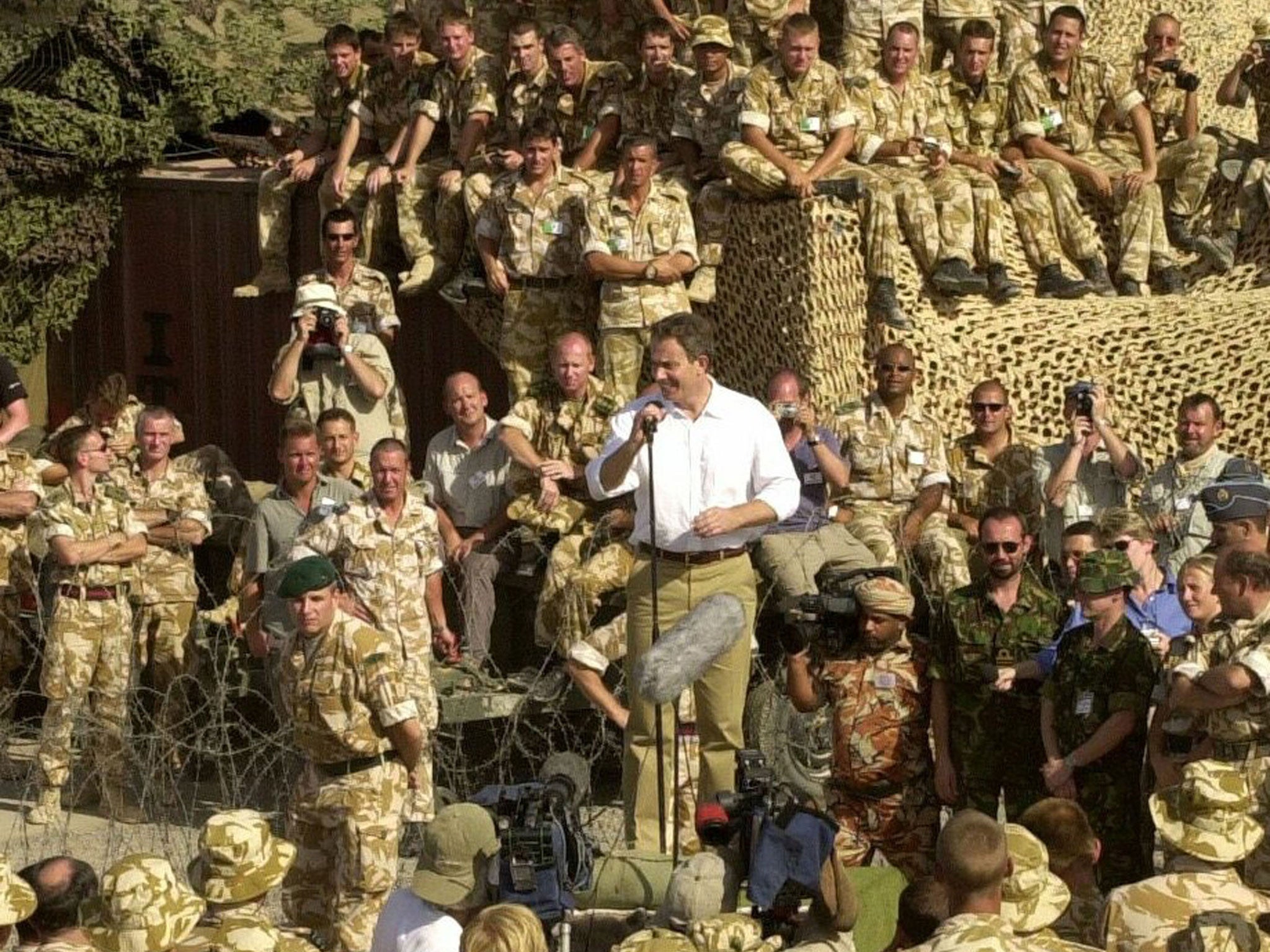When the 'feral beast' of The Independent bit back at Tony Blair
'It is difficult to imagine the newspaper Mr Blair envisages in his platonic heaven, but this probably isn’t it'


Your support helps us to tell the story
From reproductive rights to climate change to Big Tech, The Independent is on the ground when the story is developing. Whether it's investigating the financials of Elon Musk's pro-Trump PAC or producing our latest documentary, 'The A Word', which shines a light on the American women fighting for reproductive rights, we know how important it is to parse out the facts from the messaging.
At such a critical moment in US history, we need reporters on the ground. Your donation allows us to keep sending journalists to speak to both sides of the story.
The Independent is trusted by Americans across the entire political spectrum. And unlike many other quality news outlets, we choose not to lock Americans out of our reporting and analysis with paywalls. We believe quality journalism should be available to everyone, paid for by those who can afford it.
Your support makes all the difference.In June 2007, Tony Blair denounced the British press as a ‘feral beast’ – and singled out ‘The Independent’ as the only example. This open letter, which we published on the front page, still sums up my feelings about the paper
Most days The Independent speaks for itself. We like to think that we do our little bit to make sense of an often bewildering world. But today is different: our editorial approach, and the values that underpin it, have come under attack from the Prime Minister, Tony Blair.
In a wide-ranging speech on politics and the media, he singled out this newspaper as a metaphor for the corrosive relationship between the public and the body politic, and on behalf of our journalists, and more particularly our readers, we felt it would be wrong to let his assertions go unchallenged. The Independent, he said, “is absolutely entitled to print what it wants, on the Middle East or anything else. But it was started as an antidote to the idea of journalism as views, not news. That was why it was called The Independent. Today it is avowedly a viewspaper, not merely a newspaper. The final consequence of this is that it is rare today to find balance in the media.”
As the only representative of the multifarious British media mentioned by name, it’s hard not to be flattered. Or, indeed, vindicated – our principled opposition to his policy on Iraq (or the Middle East as he quaintly put it: note he couldn’t refer to Iraq by name) has clearly exasperated him. But that misses the point. We are unabashed about the way in which The Independent has evolved, although we would point out that this newspaper was not established as an antidote to the idea of journalism as views, but as an antidote to proprietorial influence and narrow political allegiance.
Today’s paper is true to those ideals. So how come we now exemplify everything that’s wrong with the public discourse? We don’t trawl through people’s dustbins. We respect the privacy of those in public life. We strive to abide by the PCC code. But, after 10 years of the Blair administration, a decade of spin and counter-spin, of dodgy dossiers, of 45-minute warnings, of burying bad news, of manipulation and misinformation, we feel that the need to interpret and comment upon the official version of events is more important than ever. And we are confident that our readers can differentiate between news and opinion. We can also be sure that our readers will make up their own minds, and with this in mind we are printing the full text of Mr Blair’s speech (there we go again, offering another viewpoint).
What clearly rankles with Mr Blair is not that we campaign vociferously on certain issues, but that he doesn’t agree with our stance. What if we had backed the invasion of Iraq (like, for example, we supported the interventions in Kosovo and Sierra Leone)? Would he then be attacking our style of journalism? Of course not. We are unapologetic about our opposition to Iraq, the biggest foreign policy folly of our age, and we shall continue to hold him and his government to account.
All that said, we welcome Mr Blair’s contribution to what is an important debate. He is right to say that relations between the media and the political establishment need to be repaired. And his comments on the role of newspapers in particular in the fast-changing media landscape echo discussions that are currently taking place in this office, and in probably every other newspaper in Britain. The days when a newspaper could be simply a notice-board of the previous day’s events are as outdated as black-and-white television.
Of course, news is still the backbone of our offering, but we feel our readers today want more: a diverse range of commentary, colourful debate, provocative front pages and, yes, the views behind the news. It is difficult to imagine what kind of newspaper Mr Blair envisages in his platonic heaven, but it’s probably safe to say that this isn’t it.
Join our commenting forum
Join thought-provoking conversations, follow other Independent readers and see their replies
Comments